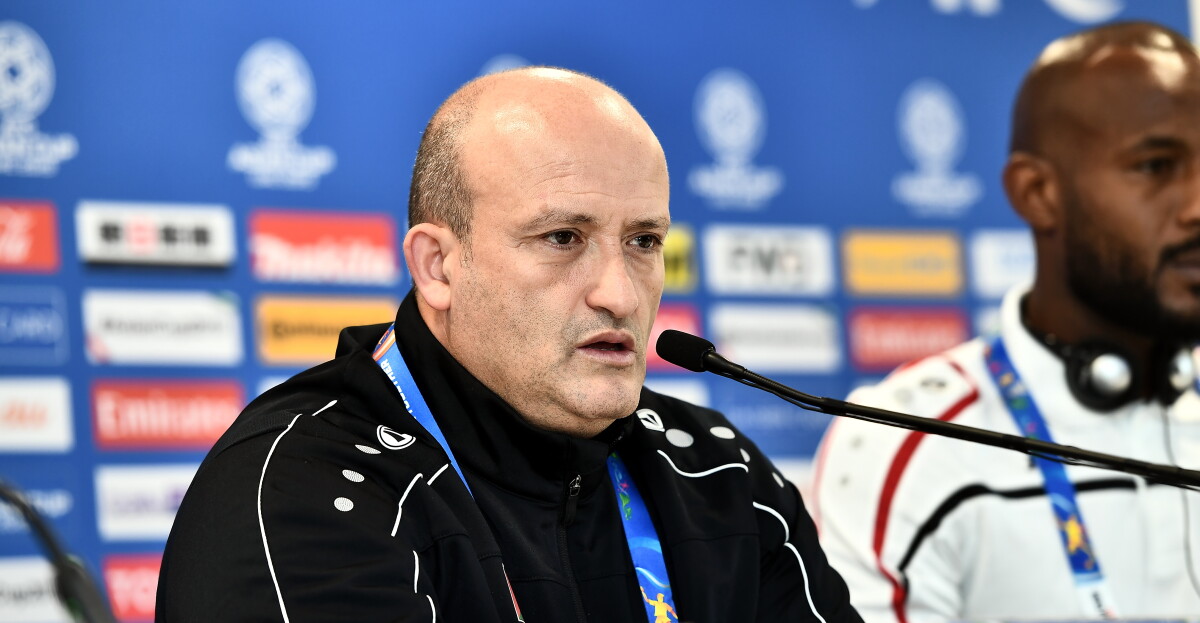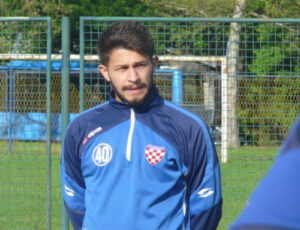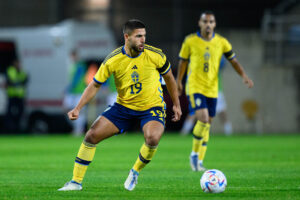This past week, The Guardian, wrote a piece about football in Palestine and instead of covering an array of interesting topics ranging from the WBPL’s financial problems, corruption within the PFA, or the national team’s splendid performance in 2023 Asian Cup qualifying the author decided to allow former national team coach Noureddine Ould Ali to pontificate on his shortcomings. Some of the problems he cited were problems that were experienced by his predecessors and not by him in his role as national team manager:
“Imagine if Gareth Southgate had half his players in another city and they can’t come or there are checkpoints between Liverpool and Manchester and some players get turned back. This is the situation when you coach Palestine.”
This never happened to Ould Ali in his three years as national team manager. This challenge is faced by clubs but at national team level most the players were based abroad or had other passports that made travel significantly easier.
That means a hat-trick of appearances at the continent’s biggest event and is, for Susan Shalabi, vice-president of the Palestinian Football Association, a stunning achievement. “It’s like glimpsing an oasis of hope while wandering without direction in a desert of disappointments,” she says.
A desert of disappointments is the culture that her boss, Jibril Rajoub, has instilled in the PFA. All credit goes to the players and current coach for rescuing an absolutely dire situation.
“Sometimes they block players from travelling from one part of Palestine to another,” Ould Ali says. “He [Daboub] hedged his bets when selecting squads. So when you have 23 players, for example, you have to manage the situation. You call up some from Gaza, some from the West Bank, some from Jerusalem, some Palestinian Arabs. There have also been efforts to call players from the diaspora in Europe and South America, especially Chile.”
Yes getting players from Gaza to the West Bank is notoriously difficult but when was the last time a Gaza League player earned a national team cap? It hasn’t happened since 2013. Palestine’s best players play abroad…. you don’t need to hedge your bets. Especially since Palestine hasn’t played on home soil since October 2019.
Dabboub did the sensible thing for Asian Cup qualification. He didn’t bother calling up players from WBPL teams because they hadn’t played competitively in over a month before the qualifiers. Only players from AFC Cup participants Shabab Al-Khaleel and Hilal Al-Quds were in the squad alongside 10 players who played abroad- six in Egypt, two in Chile, one in Indonesia, and one in Portugal.
“They would be better without occupation but the biggest change would be felt more in terms of organisation, management and finances,” Ould Ali says. It would not, however, necessarily mean that there would be a massive rise in standards and rankings. “Palestine would then be like other Arab countries like Jordan, Lebanon or Syria as they have a similar football culture.”
Yes the biggest change would have come if a fraud like Ould Ali was never given the post of national team manager. Let me stress this again- had Palestine won two winnable games against Singapore and Yemen (whom they easily beat after Ould Ali left the post) Palestine would have advanced to the final round of World Cup qualifying.
Lebanon hasn’t beaten Palestine since 1998. Syria hasn’t beaten Palestine since 2006. These are also countries with their own problems at home- let’s not pretend that they have set some unattainable standard. Palestine is already at that standard.
“For the people, the national team is really important but fans are a problem,” Ould Ali says. “They don’t know the difference between a national team under occupation and one that is in a normal situation. Palestine fans compare their team with other teams but it is not the same. When Palestine play away, a simple trip can take 20 hours but the fans still just say ‘why didn’t you win?’”
Sports media in every other country in the region is far more robust and unforgiving in their criticisms in the surrounding countries. Ould Ali had a mostly pliant media during his time in the post and he demonstrated extremely thin skin when simply asked about why his decisions on the pitch did not work out.
The fans are not the problem. Jibril Rajoub’s running of the PFA is the problem and Ould Ali being allowed to remain in the post for three years in spite of disastrous results was a symptom of that problem.
I also find it quite confusing as to why or even how Ould Ali keeps popping up in the international media. The Algerian has gotten more attention than his predecessor (Abdel Nasser Barakat) and successor (Makram Dabboub) combined despite not achieving a fraction of their success.
Ould Ali has appeared in Algerian, Belgian, British, German, and Saudi outlets and in many cases he has made his voice heard at the lowest ebbs of his tenure- eager to explain how difficult his job is to journalists who presumably think that Palestine should be happy with just participating in competitions. To his credit, the Algerian does go a long way to schmooze with journalists and I think part of the reason why he has very little time for this journalist is due to the fact that I fairly criticised him following poor performances.
Ould Ali has parlayed this media coverage into a role coaching Algeria’s U23s which should be his sole focus and the focus of the media covering him. Should journalists want to get insight into the current team why not interview Markam Dabboub who has a 100% record in five competitive matches (15 GF, 0 GA) as opposed to Ould Ali had a record of 1-3-5 in his competitive fixtures (3 GF 13 GA)?




